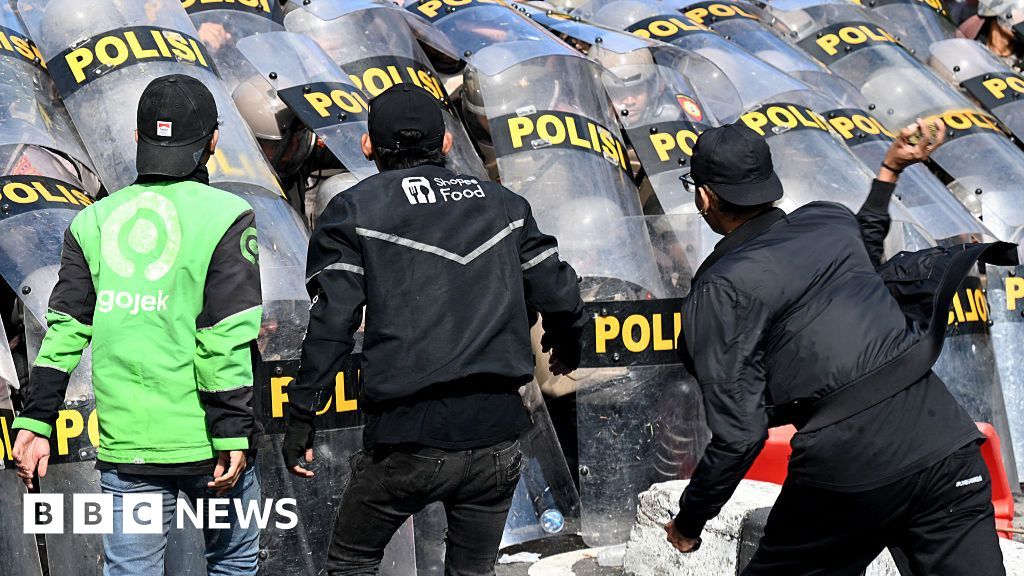Indonesian politicians to have perks cut in bid to quell unrest
- BBC News
Indonesian political parties have agreed to reverse some state-funded perks their politicians receive in a bid to quell nationwide protests, the countrys president has said.
Several cities in the southern Asian nation including the capital, Jakarta, have been gripped by anti-government demonstrations in the past week that have at times led to clashes between protesters and police.
While the protests have been fuelled by a wide range of issues - including the death of a ride-sharing driver - one core complaint concerns a new monthly allowance for lawmakers.
President Prabowo Subianto announced on Sunday that several perks would be reigned in, including the size of some allowances.
The Indonesian leader - who has already had to cancel a trip to China over the unrest - said some demonstrations had gone beyond what was considered peaceful and may amount to "treason and terrorism".
He added that he had ordered the police and armed forces to take strong action against looting and property damage.
The home of Indonesias finance minister Sri Mulyani Indrawati was among several targeted by looters on Sunday, news agency AFP reports.
The protests have primarily centred on an increase of 50 million rupiah ($3,030; £2,250) in parliamentarians allowances - almost 10 times the minimum wage in Jakarta.
But they escalated after Affan Kurniawan, a 21-year-old ride-sharing driver, was run over by a police vehicle during a demonstration in the capital on Thursday.
Three people were killed after protesters set fire to a regional parliament building on Friday evening.
Over the weekend, protests continued, with police in central Jakarta firing tear gas to disperse crowds on the streets, while some demonstrators throwing Molotov cocktails and firecrackers at a police compound.
Prabowo did not specify which lawmakers would have their allowances curtailed, but said a moratorium on overseas trips would also be imposed.
However, the concessions to the protesters may not quell the widespread dissent.
Muzammil Ihsan, head of the All Indonesian Students Executives Body, the countrys largest student group, told Reuters that the move was "not enough" and that further demonstrations were being considered.
"The government must resolve deep-rooted problems," he said. "The anger on the streets is not without cause."
Protesters have demanded higher wages, lower taxes, stronger anti-corruption measures, and have expressed objections to the heavy-handed way police have responded to some of the demonstrations.